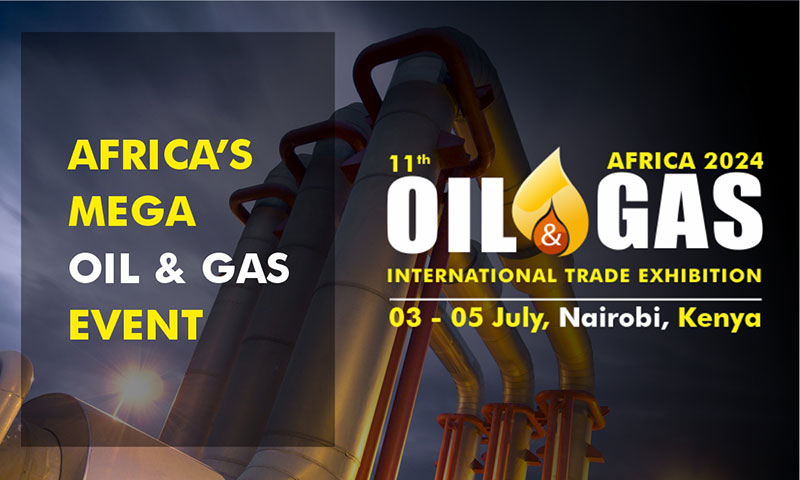

How investing natural heritage can benefit African countries
Posted on :Friday , 21st October 2016
From the Democratic Republic of the Congo (DRC)’s Virunga National Park, to Botswana’s Okavango Delta, to Zimbabwe’s Mana Pools and Tanzania’s Selous Game Reserve, wondrous diversity and natural value make Africa’s natural heritage the envy of the world. Yet research by WWF in 2015 shows that 61 per cent of Africa’s natural World Heritage sites are threatened by concessions or activity by the extractives sector – oil, gas or mining.
When faced with the imperative of alleviating poverty through economic development, it is understandable that our leaders may feel a strong urge to exploit Africa’s resources, even if they are to be found underneath World Heritage sites or other protected areas. But a narrow focus on hydrocarbon and mineral resources overlooks other, more sustainable options for achieving human and economic development in some of the continent’s poorest countries.
Namibia for example is using natural resources and World Heritage sites as the basis for attracting tourists to the country. In 1998, Namibia’s first four communal conservancies earned about US$150,000 from visiting tourists. By 2015, benefits to Namibia’s 82 conservancies had increased to over US$8 million per year, with total benefits to communities since 1998 amounting to over US$63 million. The benefits are not limited to communities either, as the economic contributions to Namibia’s net national income amounted to over US$50 million in 2015 alone.
By setting up systems that support conservation of natural resources and developing them for various forms of tourism, including photographic, adventure, hunting, and cultural, Namibia has been able to put in place sustainable development practices that are conservation friendly.
Similarly, in DRC’s Virunga National Park, conservation organizations and local civil society groups are developing sustainable tourism, fisheries and small-scale hydropower, which, it is estimated, could generate 45,000 jobs and around US$350 million per year.
What the example of Namibia, and the promise of a sustainable Virunga, also highlight is the importance of involving communities in the management of the resources on which they depend for their livelihoods.
The granting of so many extractive concessions represents a lack of respect for World Heritage status, but also disregards the long-held position of UNESCO’s World Heritage Committee that such activities are “incompatible with World Heritage status.” This position has been adopted for good reason, such is the propensity for extractives activities rapidly to degrade the values for which places are recognized as worthy of World Heritage status.
For example, transect lines are cleared for seismic and other testing, which disrupts nature and facilitates access to poachers. Temporary communities during the exploration phase grow, consume resources and draw in services through the exploitation phase. And so a once pristine place is damaged and changed, sometime irreversibly. And that’s to say nothing of the environmental risks that extractives industries pose to sensitive ecosystems, such as oil spills, toxic tailings from mining, pollution and contamination of water.
With limited capacity and expertise to limit or respond to such risks, and unanswered questions around the challenges of getting resources from difficult-to-access places to markets, we have to ask ourselves whether we want to pay such a high price for the loss of our heritage, for short-term unsustainable gain.
The solution to releasing these resources while avoiding such damage – as the Africa group would have us believe – would seem to be technology. Through horizontal drilling and other extraction methods, they argue that resources can be extracted without damaging the environmental or social values of sensitive areas. Yet these methods of extraction are often more costly and are not without risks.
Following the adoption of the Sustainable Development Goals last year, African countries, in particular, should be looking to invest in their natural heritage rather than looking to special exceptions to justify plundered them. We should be looking for sustainable economic development opportunities that benefit people and nature over the long-term, not arguing for special cases that increase the risks to some of our most valuable places and the people who depend on them.
I believe we also need to challenge ourselves about whether there should be a special case for Africa. Why not then a special case for Latin America or for Asia? Any exception to the well-founded position on incompatibility of extractives and World Heritage would open the floodgates and cause us to lose the shared global heritage that belongs to all humanity.
Achieving truly sustainable development is no easy task, especially in such vast and diverse natural World Heritage sites as Tanzania’s Selous Game Reserve. For the benefit of governments, but also potential businesses and investors, more work needs to be done to define which economic activities are compatible with protected area status. We must try to discover which can be sustainably pursued with minimal degradation of natural value, and in a way that delivers long-term benefits for people and nature.
I encouraging a dialogue on this important question, and would welcome the engagement of all stakeholders in such a process. Africans are proud of our heritage, and I believe we would rather see it protected and managed sustainably rather than looking to make special exceptions to international rules.
Please Select an Option
-
Exhibiting
-
Visiting
-
Information

Expogroup
Expogroup is a full service exhibition organiser with over 28 Years experience in International trade exhibitions. Our current portfolio includes 28 annual exhibitions from a diverse range of industries being held across the Middle East & Africa.
EXPOGROUP © 2025 | Privacy policy
